Why and when do you need an estate planning checklist?
Life happens, and as changes occur, it is crucial to review your estate plan regularly. Reviewing the plan for your estate annually can guarantee your legacy is passed on to your loved ones according to your wishes.
At Paths Elder Law, we recommend periodic reviews to fine-tune your estate plan as your personal circumstances change. The end of each calendar year is usually a great time to check in, but there might be specific life events that trigger a review.
Events to Consider in Estate Planning
Certain life events may warrant adjustments to your estate planning documents. Life is full of unexpected changes, and your estate plan should reflect your current circumstances. Update your estate plan if you experience the following major life changes:
- Birth or adoption of a child or grandchild
- A child or grandchild reaching adulthood
- Changes in financial goals for you and your spouse
- A change in marital status
- Onset of a disability or illness of your spouse
- Changes to life insurance or long-term care policies
- Buying a house or real estate
- Taking on significant debt, such as mortgages or other lines of credit
- Considerable change in asset value
- Receipt of an inheritance or large gift
- Changes in investment and tax laws
- Family members’ illness, disability, or death
- Change in trustee or executor
- Career changes, including promotions, new jobs, or starting or closing a business
Basics of Estate Planning
A comprehensive estate plan should include the following key components to honor your wishes:
- Trust/will. A Will is a legal document that outlines how your assets will be distributed after your death. It allows you to name beneficiaries for your property, designate guardians for minor children, and appoint an executor to carry out your wishes. A Trust, on the other hand, is a legal entity created to hold and manage assets during your lifetime and after your death.
- Beneficiary designations. Beneficiary designations refer to the individuals or entities you name to receive specific assets upon your death.
- Durable power of attorney. A durable Power of Attorney is a legal document that grants someone you trust the authority to manage your financial and legal affairs if you become incapacitated.
- Guardianship designations. This process allows you to name a person or persons who will take legal responsibility for your minor children if both parents pass away or are otherwise unable to care for them.
- Healthcare power of attorney. A healthcare Power of Attorney (also known as a medical power of attorney) is a legal document that allows you to appoint someone to make medical decisions on your behalf if you cannot do so.
- Letter of intent. This is a non-legally binding document you can write to provide additional guidance and information to your loved ones, your executor, or a court.
Additionally, consider:
- Reviewing retirement accounts
- Inventorying assets
- Listing debts and bills
- Compiling insurance policies
- Listing memberships and affiliations
- Planning for digital assets (emails, social media, etc.)
- Working with financial planners and professionals
Yearly Estate Planning Checklist: What You Need to Include
A thorough estate planning process begins with an understanding of what you own. Follow this 10-step checklist to ensure you’re squared away at the end of each year
1. Take Inventory of Your Assets
Make a list of all tangible and intangible assets. Tangible assets include:
- Real estate
- Vehicles (cars, bikes, boats)
- Personal possessions (jewelry, electronics)
- Collectibles (art, coins)
Intangible assets include:
- Life insurance policies
- Bank accounts and CDs
- Health savings accounts
- Investment accounts (bonds, stocks)
- Business ownership
- Retirement accounts (IRAs, 401(k)s)
Estimate the value of these assets, including account numbers and physical document locations. Provide contact information for firms holding these assets.
2. List Your Debts.
Understanding your liabilities for each year is as important as knowing your assets. Create a comprehensive list of all debt obligations, including:
- Mortgage lines of credit
- Auto loans
- Home equity lines of credit (HELOCs)
- Credit cards
Include the contact information for the companies holding the debt and the location of signed agreements. Run a credit report annually to identify any missed obligations.
3. List Memberships or Affiliations
Documenting your memberships can provide additional benefits and information for your beneficiaries. List organizations you are part of, such as:
- Veterans associations
- Professional accreditation associations
- Alumni groups
Include any life insurance benefits and inform beneficiaries of charitable causes you support. Sign and distribute copies of this list to your estate administrator, and/or your spouse, and keep one for yourself.
4. Account for Family Needs
Ensuring your family members’ security is a critical part of estate planning. Protect your assets and beneficiaries’ best interests by reviewing the following:
- Adequacy of life insurance
- Naming guardians for your minor children
- Documenting wishes for your children’s care
5. Review Retirement and Insurance Accounts
Ensure designated beneficiaries are up to date, especially after life changes such as divorce or remarriage. Do not leave beneficiary sections blank, and consider naming contingent beneficiaries.
6. Assign Transfer on Death (TOD) Designations
Set up TOD designations for brokerage, CD, and bank accounts to avoid probate. Contact your bank or custodian to establish these designations.
7. Establish Directives
Clear directives can ensure your wishes are followed precisely. Choose a responsible estate executor. Important legal directives include:
- Trusts
- Medical care directives (advance health care directives)
- Durable financial power of attorney
- Limited power of attorney
Assign different people for financial and medical representation and have backups for each.
8. Plan for Digital Assets
Digital assets are an increasingly important part of modern estate planning. List digital assets, such as:
- Email accounts
- Virtual currencies
- Social media accounts
- Domain names
Include login information and ensure beneficiaries know where to find this list. Provide legal consent for beneficiaries to access digital information in your wills and powers of attorney.
9. Review Your Work with AWork with Professionals
Hire an experienced estate planning attorney and financial advisor to navigate the process. For complex estates, consult a tax professional or estate planning attorney.
10. Complete Other Important Documents
Comprehensive documentation is vital for an estate plan. Make sure your estate plan includes the following:
- Will
- Health care proxy
- Durable power of attorney
- Living will
- Guardianship for minor children and pets
- Letter of instruction
Ensure trusted advisors have copies of these documents.
Detailed Estate Planning Strategies
While completing a basic estate planning checklist is an important first step in managing your assets, it’s only part of the process. To fully secure your estate, it’s important to implement more detailed and comprehensive strategies.
Part of your estate planning involves carefully planning to safeguard your assets and provide you and your family peace of mind. By taking a thorough approach to estate planning, you can ensure that your legacy is managed according to your intentions.
A complete estate plan will have the following features:
1. A Trust.
Setting up a testamentary trust can be a good idea, especially if you have substantial assets. A living trust allows you to assign parts of your estate to specific purposes while alive.
It ensures a smooth transition of your assets upon your death. A trustee can manage your assets if you become incapacitated. After your death, the assets can be transferred to your beneficiaries without going through the probate process.
2. Medical Directives.
Medical directives, including a durable power of attorney for healthcare and a living will, are crucial. They spell out your medical care preferences if you cannot decide. An advanced health care directive combines these documents, ensuring your healthcare wishes are honored.
3. Financial Power of Attorney.
A financial power of attorney designates someone to act on your behalf in managing your financial affairs if you cannot do so. This includes paying bills, managing investments, and handling legal matters. For those uncomfortable giving full control to one person, a limited power of attorney can specify which tasks the designated person can handle.
4. Guardianship for Minor Children.
Naming a guardian for your minor children is critical to estate planning. This ensures that your children are cared for by someone you trust if something happens to you. It’s also wise to name a backup guardian to avoid family disputes and court battles.
5. Life Insurance Review.
Regularly review your insurance policies to meet your family’s needs. Doing this is especially important for families with minor children, dual-income households, or those with substantial debts like mortgage lines of credit. Adequate life insurance can provide financial security and cover expenses like college tuition or special needs care.
6. Retirement Accounts and Beneficiary Designations.
Retirement accounts and insurance policies should have updated designated beneficiaries. These accounts bypass the probate process and go directly to the named beneficiaries. Ensure these designations are current, especially after significant life events like marriage, divorce, or the birth of a child.
7. A Strategy to Avoid Probate.
Many people need help understanding the probate court process due to its complexity and costs. Strategies to avoid probate include setting up testamentary trusts, adding TOD designations to accounts, and ensuring all estate planning documents are correctly executed and updated.
By incorporating these strategies into your estate planning, you can ensure a smoother transition for your heirs. You also avoid legal complications and provide clear instructions reflecting your wishes.
Make Your Estate Planning Checklist Now!
The best way to ensure your estate plan is up to date is by working with an estate planning attorney. An estate planning attorney can help navigate the complexities of estate laws, especially if you have a large or complicated estate. They can guide minimizing estate taxes, setting up living trusts, and ensuring all your legal documents are legally sound and reflect your wishes.
Remember, you’ll also want to schedule annual reviews of your estate plan to accommodate changes in your life circumstances and changes to laws. This proactive approach ensures that your plan remains relevant and effective in protecting your assets and loved ones.
Whether you are just starting your estate planning journey or need to review and update your existing plan, a detailed checklist at the end of the year is helpful.
By following this record and working with a trusted lawyer, you can create a comprehensive plan that addresses all aspects of your estate, from tangible and intangible assets to minor children and digital properties.
Paths Elder Law is here to assist you in every step of this critical process. We offer expert guidance and support. For inquiries, you can schedule a consultation with our experienced lawyer now.
End of the Year Estate Planning Checklist
Life can be unpredictable with unexpected changes. As life changes occur, it may be necessary to review your current estate to ensure everything is in order. Regular reviews will help to ensure the legacy you have built is passed on to your loved ones in accordance with your wishes. At Paths Elder Law, we recommend periodic reviews of your estate plan. With regular reviews of your estate plan, you will be able to fine-tune both your financial and personal circumstances as they change. Having an estate planning checklist will help make sure that nothing is overlooked.
*This blog is for educational purposes only and should not be considered legal advice. The use of the Paths Law Firm website does not constitute a client-lawyer relationship.
Changes in Circumstances
Many events occur during our lifetime, some of which are joyful moments as well as times of sorrow. These changes may warrant adjustments to your estate planning documents. If you have had any of the below life changes it may be necessary to update your estate plan.
- When a child or grandchild is born
- Adoption of a child or grandchild
- When A child or grandchild legally becomes an adult
- Education for a child or grandchild
- If the guardian, you have named in your will for your underage children dies
- A change in the number of your dependents due to caring for an adult
- Changes in financial goals for both you and your spouse.
- A change in marital status to include a new marriage or a divorce
- The onset of a disability or Illness of your spouse
- Changes to policies or coverage such as life insurance and long-term care
- The purchase of a home or any other type of large asset
- Taking on additional liabilities or borrowing large amounts of money
- A substantial increase or decrease in the value of your assets
- Receipt of an inheritance or large gift
- Changes to state and federal laws related to investments and taxes
- If anyone in your family becomes ill, disabled, or dies
- If your trustee or executor dies or is no longer able to act on your behalf
- A change in career, a promotion, a new job, or starting or closing a business

Estate Planning Checklist – Basics of Estate Planning
A comprehensive estate plan should include the following core items:
- Trust/will
- Beneficiary designations
- A durable power of attorney
- Guardianship designations
- Healthcare power of attorney
- Letter of intent
Besides these six items, a well laid out estate plan should consider the following:
- Review of retirement accounts
- Inventory of assets
- List of debts/bills
- Identify all insurance policies
- List of memberships and affiliations
- Planning for digital assets, including emails, social media accounts, etc.
- Working with financial planners and similar professionals


Does your current estate plan measure up?
We will go through the key items that should be on your estate planning checklist to ensure that you do not leave any decisions to chance. The following checklist should cover most of your bases, if not all.
1. Inventory of Assets
You might think you are not rich enough to justify estate planning, but as soon as you start you will be surprised at all the tangible and intangible assets under your name. To begin, go through your home in and out and make a list of all the valuables you have. Some good examples include:
- The house itself, land, and any other real estate under your name
- Vehicles, including cars, bikes, boats, etc.
- Personal possessions like jewelry, electronics, power tools, lawn equipment, etc.
- Collectibles like art, coins, antiques, trading cards, etc.
Next, follow up on your asset inventory list with non-physical assets. Below are some examples of intangible assets an estate may include:
- Life insurance policies
- Savings and checking accounts along with certificates of deposit
- Health savings accounts
- Bonds, stocks, and mutual funds, as well as other brokerage accounts
- Ownership in a business
- Retirement plans such as individual retirement accounts and workplace 401(k) plans


When you inventory your tangible and intangible assets, you should then estimate their value. For some types of assets, outside valuations could help. If you do not have an outside valuation, you can value items based on how you expect your heirs to value them. This will help make sure that your possessions are distributed equitably among the people you love.
Be sure to include all account numbers and list the location of any physical documents that you have in your possession. It is also a good idea to include contact information for the firms that hold these intangible possessions.
2. List your Debts
After creating your asset inventory list, make a list of all debt obligations you have, including open credit cards. The list should include everything from mortgages, auto loans, home equity lines of credit (HELOCs), and other debts or obligations you have. On the list, include the contact information of the companies holding the debt, and the location of signed agreements.
It is generally a good practice to run a credit report at least once per year. This will help to identify any credit cards that you might have missed.


3. Create a List of Memberships or Affiliations
Make a list of any organizations that you are a part of such as a veteran’s association, AARP, a professional accreditation association, American Legion, or a college alumni group. Some of these organizations may have life insurance benefits at no extra costs on all their members, and your beneficiaries might be eligible to collect.
Also, include other charitable organizations you support. It is wise to also let your beneficiaries know what charitable causes or organizations are important to you, and which ones you would like donations to go to in your memory.
Once you make these lists, it is important to sign and them. Be sure to make a minimum of three copies. Give the original copy to your estate administrator, give your spouse a copy (if you are married), and have them keep it in a safe place such as a safety deposit box. Keep a copy in a safe place for yourself.
4. Account for the needs of your family
At this point, you have a good sense of what is in your estate. Now, think about how you can protect these assets and your beneficiaries’ best interests once you are gone. Your estate planning checklist should include a review of the following items.
Is your life insurance enough? This could be important if you have kids and your current lifestyle requires double incomes. It will be even more important for those with children with college tuition bills or special needs.
Name a guardian for your kids, as well as a backup guardian, just in case. This will help to avoid unnecessary family court fights, which could end up draining assets in your estate.
Document your wishes for your kids’ care. Do not assume certain family members will be there for them, or that those relatives share your goals and ideas. Don’t assume a judge will necessarily abide by your wishes in case the issue goes to court.


5. Review your Retirement and Insurance Accounts
Policies and accounts with designated beneficiaries should pass directly to the named persons upon your death. It will not matter how you direct these policies or accounts to be distributed in your trust or will – the beneficiary designations outlined in the retirement policy will take precedence.
Contact your plan’s administrator for a current listing of your beneficiaries for each account. Ensure you review each of these accounts and make sure the beneficiaries are documented as you wish. This is critically important if you have divorced and remarried.
Just as with the retirement accounts, life insurance and annuities take precedence and will pass directly to your beneficiaries as outlined in each plan. It is therefore important to get in touch with your insurer to update your beneficiaries if they change.
As a rule of thumb, do not leave any beneficiaries section blank. Consider also naming contingent beneficiaries. This may be important in case your primary beneficiary dies before you do, and you forget to update the primary beneficiary designation.


6. Review or Assign Transfer on Death Designations
All assets bequeathed in a will usually go through probate, and so will assets if a person dies intestate. This is a process where assets are distributed according to a court’s instruction, and it can be quite costly and time-consuming.
However, many accounts like individual brokerage accounts, CD accounts, and bank savings are unnecessarily probated every day. In case you hold these accounts, you can have them set up to have a transfer on death designation, which will allow named beneficiaries to receive assets without having to go through the probate process. Contact your bank or custodian to have this set up on all your accounts.
7. Establish your Directives
Your estate executor or administrator will remain in charge of administering your will after you pass on. It is therefore essential to choose a person who is in a good mental state and can be responsible to make decisions.
Don’t assume that your spouse is the best choice. Consider how emotion related to your passing on could affect their ability to make sound decisions. In case you foresee an issue, it is wise to consider delegating the task to other qualified individuals.
Some of the important legal directives to include in your estate planning checklist are as follows:
A trust may be appropriate. When you have a living trust, you can ideally assign parts of your estate to go towards specific things while you are alive. When you become incapacitated or ill, your trustee can then take over. Once you pass on, the assets will transfer to your selected beneficiaries, thereby avoiding probate.


A medical care directive or a living will, ideally spells out your medical care wishes if you are unable to make sound decisions yourself. A medical power of attorney could also be awarded to a trusted person for your healthcare, which ideally gives the person the authority to make decisions that you cannot. The two documents are sometimes combined into one, which is referred to as an advanced healthcare directive.
A durable financial power of attorney gives a trusted person the authority to manage your financial affairs in case you are medically unable to do so. The agent you designate the authority can act on your behalf when it comes to handling financial and legal matters you cannot. This may involve things ranging from paying taxes and bills to accessing and managing your assets.
A limited power of attorney could come in handy in case the idea of turning over everything to one person does not sit well with you. This serves as a legal document imposing certain limits on the authority of your chosen representative. For instance, you could grant a person the power to sign on your behalf for things like selling stock or property.
Take great care when giving someone power of attorney. They could have your finances – and even your life – in their hands. As such, you want to assign the financial and medical representation to different people and have a backup for each in case the primary choice is unavailable when needed.


8. Plan for your Digital Assets
Digital assets are all your assets that exist online. Some examples of digital assets include:
- Email accounts
- Digital trademarks or copyrights
- Virtual currencies
- Social media accounts
- Domain names
- Income-generating blogs or websites
- Online investment accounts or bank accounts
- Digital media or written works that generate income
Just like the inventory list you created for your physical and non-physical assets, create a list of all your digital assets. This list should include the digital property, say a domain name, and the respective login information to include the associated email, username, and password. Keep the list in a secure place and ensure that your beneficiaries know where to find them. Digital asset management is an important part of your estate planning checklist as passwords are likely to change often.
Remember to provide legal consent for your beneficiaries to access this digital information in your wills, living trusts, and powers of attorney. You should also decide whether you want to give a blanket authorization or whether some things should remain private and only accessible to specific beneficiaries.


9. Work with an Experienced Estate Planning Attorney and Financial Advisor
Hiring an experienced estate planning attorney and a financial advisor will help to navigate through the process of creating a solid estate plan. An attorney and financial advisor can help you establish whether you are on the proper path for estate planning, especially if you currently live in a state with inheritance or estate taxes.
For complex and large estates, such as business issues, childcare concerns, or non-familial heirs, a tax professional and/or estate attorney can help to navigate the often-complex implications. Therefore, be sure to schedule reviews of your estate plan with your attorney, once it is in place. This will help ensure that any gaps or changes are covered.
10. Complete Other Important Documents
At the bare minimum, your estate plan should address or include a will, health care proxy, power of attorney, and living will. It should also designate guardianship for your children (minors) and pets. You can also create a letter of instruction outlining step-by-step instructions that specifies your wishes on things like your digital assets and your funeral. If you are married, ensure everyone has a separate will, with plans for the surviving spouse. In addition, make sure your trusted advisors have copies of these documents.


Estate Planning Checklist Review
Be sure to revisit your estate plan as your circumstances change, for better or for worse. We suggest scheduling your estate planning checklist review on a quarterly, bi-annual, or annual basis. Regular revisions mean you are avoiding one of the biggest mistakes with estate planning – not having one at all.
At Paths Elder Law, we have spent over 25 years helping seniors and their families plan and prepare for their futures. We understand protecting those you love is the greatest gift you can leave behind. Our experienced and caring staff will work with you to create a custom plan or review an existing plan to ensure your final wishes are carried out. If you or a loved one is ready to get started with planning for the future, or you need help with an existing plan to ensure it meets your needs, contact Paths Elder Law. We are a phone call away and one step closer to the peace of mind you are searching for.

























